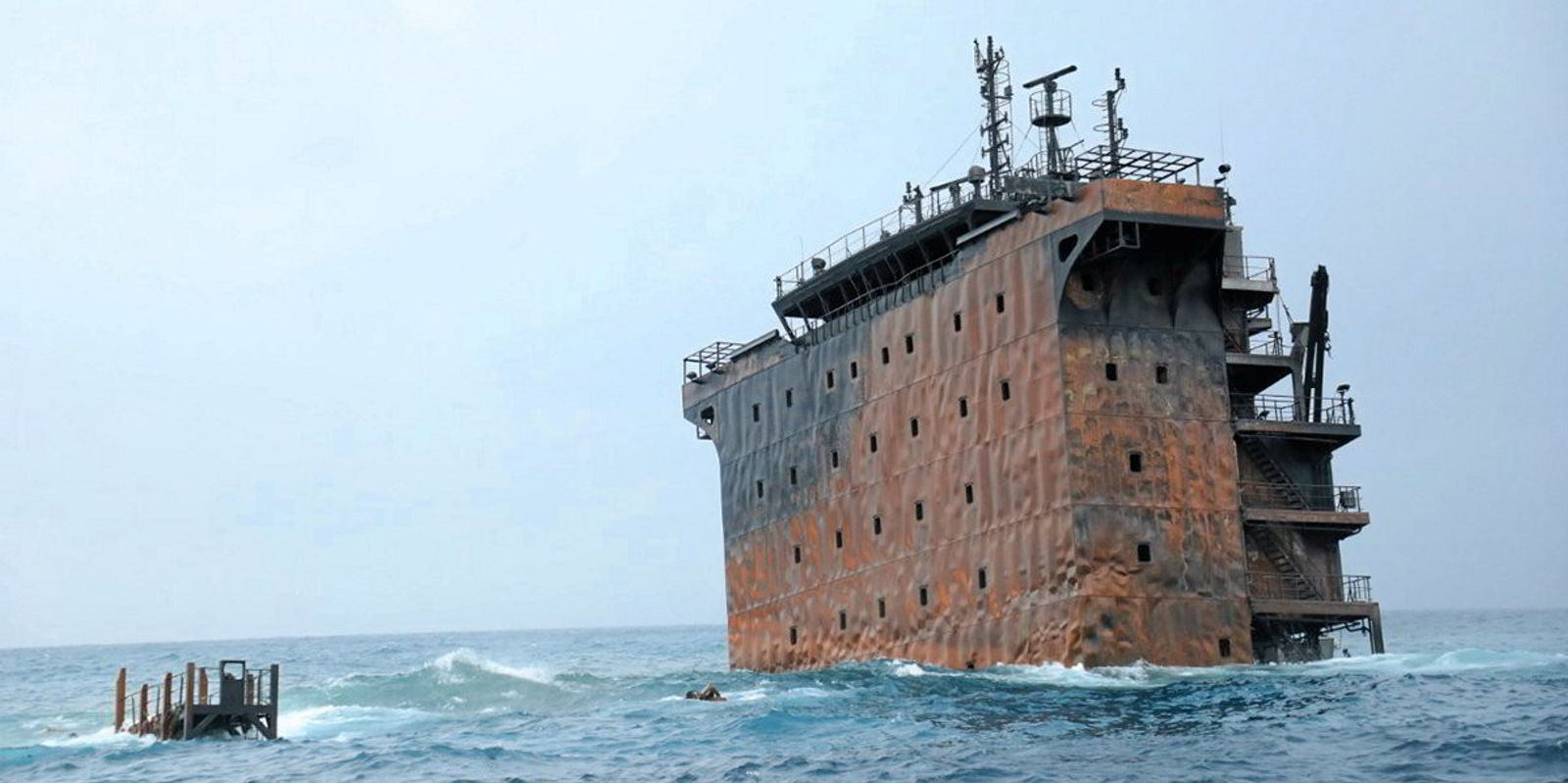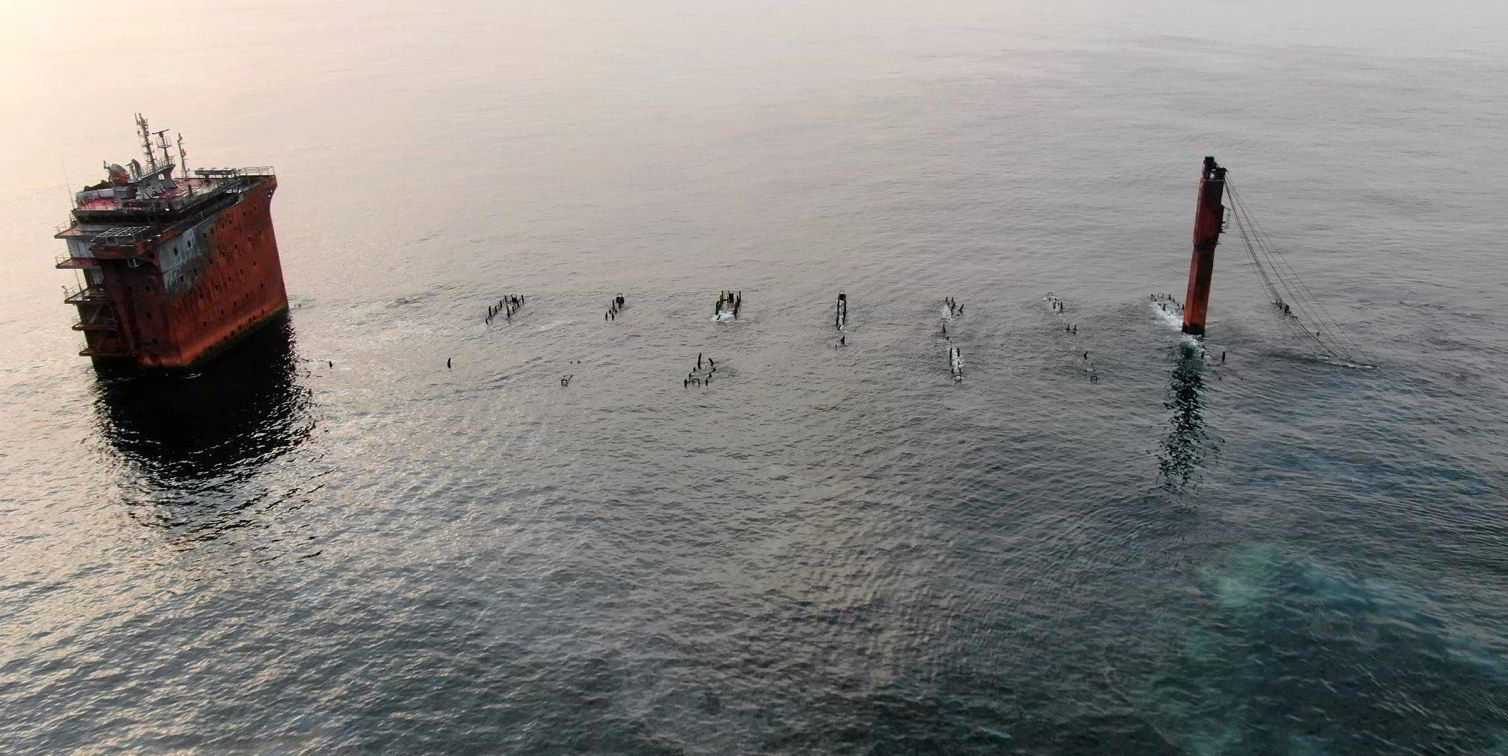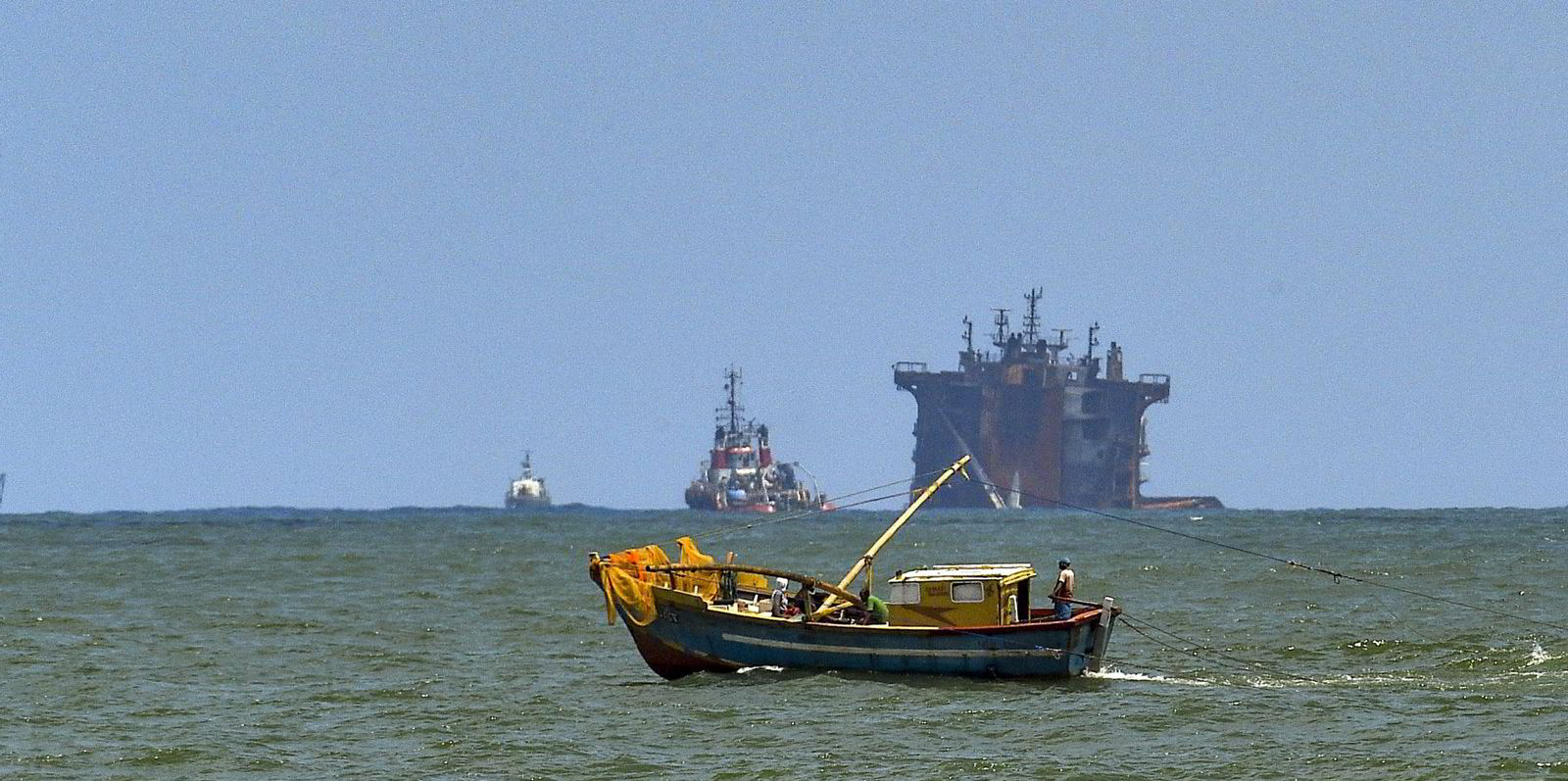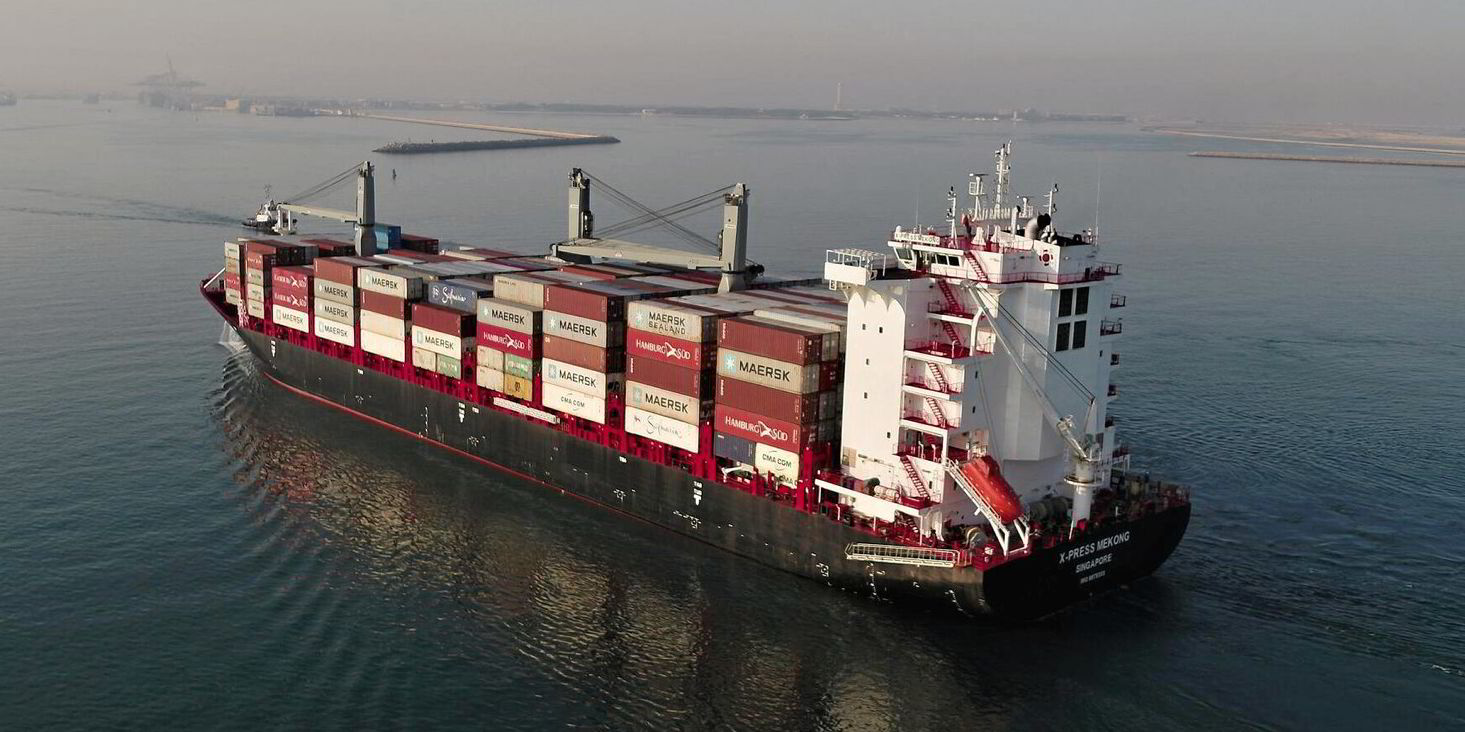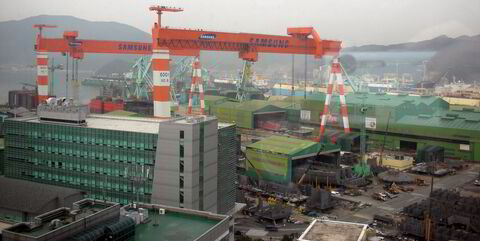Sri Lanka has told the International Maritime Organization that the plastic pollution resulting from a containership fire off its coastline will cause a legacy of pollution lasting for generations.
It is the clearest public statement so far on the extent of the pollution from the 2,756-teu X-Press Pearl (built 2021) which suffered a blaze in May.
The warning came from the Sri Lankan government in a submission to the IMO's Marine Environment Protection Committee last week calling for regulatory changes.
The statement will make worrying reading for the ship's protection and indemnity insurers, as it indicates they could face environmental claims for years to come.
In its submission, Sri Lanka said the catastrophic fire on the X Press Feeders' containership had resulted in 11,000 tonnes of plastic pellets, known as nurdles, washing up on Sri Lankan beaches.
Sri Lanka said the pollution — shipping's largest-ever single plastics pollution incident — had resulted in "overwhelming economic, social and environmental impact".
"The legacy of pollution will continue to have a profound and enduring impact for generations to come," Sri Lanka said.
The incident has killed hundreds of dolphins, whales and turtles. About 750 km (466 miles) of Sri Lanka's coastline has been "heavily polluted" with plastic pellet waste.
So far only 3,500 tonnes of the nurdles have been recovered from the beaches and Sri Lanka said that the clean-up operation will "continue for years".
The gradual erosion of nurdles into nano plastic particles is disturbing the natural food chain, it said.
The government also warned that tides washing the pollution from Sri Lanka's beaches are likely to carry the plastic waste to other countries.
Still stranded
The pollution has already affected the fishing industry and the country's diet, as Sri Lankans are eating 40% less fish, their major source of protein, since the incident.
Plastic and other pollutants continue to be released from the wreck, which is stranded about 175km off the coast.
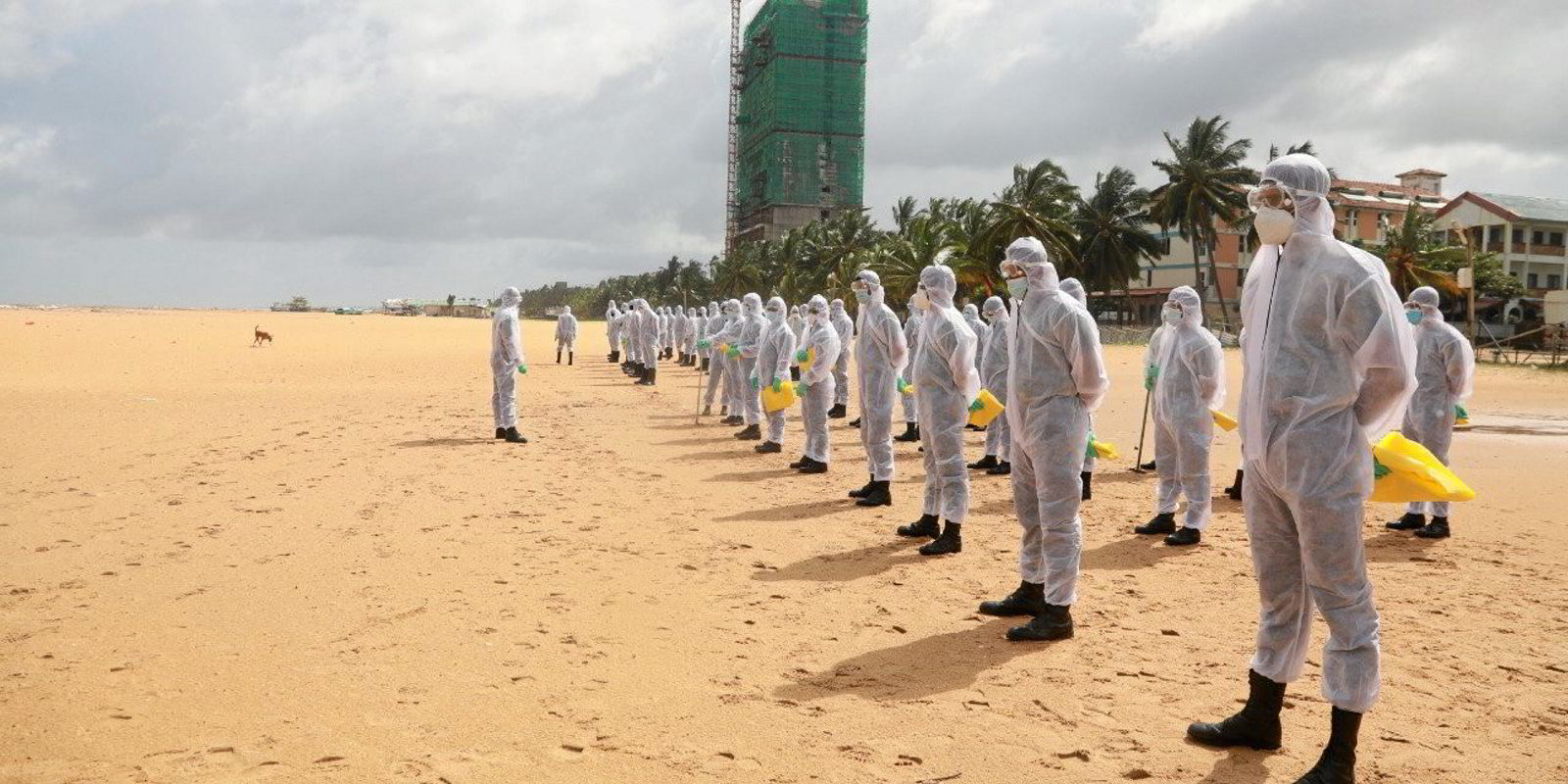
Sri Lanka is calling on the IMO to include raw plastic cargoes, such as nurdles, in the International Maritime Dangerous Goods (IMDG) Code, which would mandate standards for its packaging and stowage.
"It is Sri Lanka's strong belief that ample evidence is now available to justify an IMDG listing for plastic pellets, flakes and powders, which has been absent from the discussion to date," Sri Lanka said.
The country is also pushing for increased insurance coverage and a specialised recovery mechanism to be developed.
It also wants shipping companies to be made accountable by law for causing plastic pollution, and a funding mechanism to be established to monitor and control the transboundary movement of plastic waste.
A wreck-removal contract for the X Press Pearl has been awarded to China's Shanghai Salvage. Work is expected to begin shortly, but it is unclear how long it will take.
US firm Resolve Marine has been appointed to handle the debris from the wreckage.
